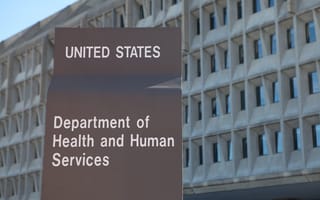
The mission of the Office of the Assistant Secretary for Preparedness and Response (ASPR), within the U.S. Department of Health and Human Services (HHS), is to save lives and protect Americans from 21st century health security threats.
According to a recent announcement, the ASPR plans to expand its network innovation accelerators to more states. These accelerators will fund medical product innovation to combat national security threats, providing needed technical and entrepreneurial support.
Through DRIVe, the Biomedical Advanced Research and Development Authority’s (BARDA) Division of Research, Innovation and Ventures, the HHS established a network of eight accelerators in 2018. Non-traditional partner outreach is a major goal for the accelerator network, as BARDA DRIVe seeks to attract entrepreneurs, innovators and researchers working on promising technologies.
“Innovation comes all across the country and our accelerator network is there to scout and foster promising solutions to improve our national health security, providing business expertise and laboratory space for startups and small businesses.”
“Innovation comes all across the country and our accelerator network is there to scout and foster promising solutions to improve our national health security, providing business expertise and laboratory space for startups and small businesses,” said BARDA Director Rick Bright, Ph.D. “Our accelerators move our reach outside of normal government channels and away from the government norms; they are part of a revolution in the way we do business, making working with us easier and faster than ever.”
Currently, these accelerators focus on three areas, including Early Notification to Act, Control and Treat (ENACT), which seeks to detect illnesses before symptoms appear. Sepsis-related solutions are also of particular interest as well as emerging disruptive health technologies.
DRIVe-funded developers gain access to mentoring programs and networking opportunities, enabling them to double down on technology development while business experts in the network guide their path to commercialization.
Applications for funding to become an accelerator are due by 11:59 p.m. EDT July 23, 2019.






